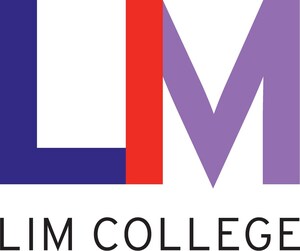LIM College Study Reveals That When it Comes to Buying, Millennials Are Not Eco-Fashionistas
NEW YORK, Feb. 13, 2018 /PRNewswire/ -- While millennials overwhelmingly claim to embrace sustainability and believe they will drive social change, the eco-friendliness of a fashion product may be the least important factor in their purchasing decisions.
In a comparison of five purchasing influencers, only 34% of those millennials surveyed reported that they are driven to make a fashion purchase because the apparel or accessory was eco-friendly and sustainably-produced. This compares with 95% for ease of purchase, 95% for price/value, 92% for uniqueness, and 60% for the brand name of the product as factors in making their fashion purchase decisions, according to the results of a recent survey conducted by LIM College professors Robert Conrad and Dr. Kenneth M. Kambara.
LIM College is located in midtown Manhattan and focused exclusively on the study of business and fashion. Conrad and Kambara's latest study, Shopping Trends Among 18-37 Year-Olds, surveyed 685 students and alumni (aged 18–37) from LIM College, RMIT University in Australia and London College of Fashion.
Professor Conrad said, "Our research is very revealing about how millennials view themselves and future generations, and their ability to change the world. Nearly 90% of the those surveyed agreed that, 'Millennials and Gen Z will help create more sustainably-produced products by convincing businesses and governments to alter existing practices.' An equal percent report they 'would abandon a product or brand for eco-unfriendliness.' This sends a clear message to the fashion industry."
"Yet while millennials would like to buy eco-friendly fashion, the industry is not providing them with sufficient choices that also meet their most important criteria for making a purchase. As we learned from our previous surveys of millennials, ease of purchase, price/value and uniqueness are their highest priorities," Professor Conrad concluded.
According to Dr. Kambara, "We believe that some of the disconnect between millennials wanting to buy and not buying eco-friendly fashion is the lack of fashionable eco-friendly choices that also meet their ease, price/value and uniqueness tests. There are only a handful of eco-friendly youth-oriented brands — such as Anek, Everlane, Nudie Jeans, Patagonia, People Tree, Reformation and K.O.I. — and none have the scale or variety of fashion offerings to meet millennials' requirements for ease, price/value and uniqueness."
"The fashion industry is approaching millennials with what they want to offer, not what the millennials want. To capitalize on millennials' desires to make eco-fashion purchases offerings must be new and different — unique from what other brands are offering — and truly deliver value. Think Zara with authentic eco-friendly and sustainable product offerings," Dr. Kambara concluded.
About LIM College
Founded in 1939, LIM College educates students for success in the global business of fashion and its many related industries. As a pioneer in experiential education, LIM College fosters a unique connection between real-world experience and academic study in business principles, offering master's, bachelor's and associate degree programs. LIM College is located in four buildings in Manhattan — the nation's fashion and business capital — giving students vast opportunities for hands-on experience and professional development. Alumni have gone on to excel at top companies, including Refinery 29, Harper's Bazaar, Barneys New York, Chanel, and Neiman Marcus.
Contact:
Melissa Krantz, Krantz & Co.
[email protected]
917.653.6716
Meredith Finnin, LIM College
[email protected]
646.218.2156
SOURCE LIM College
Related Links
WANT YOUR COMPANY'S NEWS FEATURED ON PRNEWSWIRE.COM?
Newsrooms &
Influencers
Digital Media
Outlets
Journalists
Opted In






Share this article